- Home
- Peter O'Mahoney
Faith and Justice
Faith and Justice Read online
Faith and Justice
PETER O’MAHONEY
Faith and Justice: A Legal Thriller
Peter O’Mahoney
Copyright © 2019
Published by Roam Free Publishing.
1st edition.
All rights reserved. No part of this publication may be reproduced, stored in a retrieval system, or transmitted, in any form or by any means without the prior permission in writing of the publisher. This is a work of fiction. Any resemblance to any person, living or dead, is purely coincidental.
Cover design by Belu.
https://belu.design
FAITH AND JUSTICE
TEX HUNTER LEGAL THRILLER
BOOK 2
PETER O’MAHONEY
Everything is relative. Even truth.
Table of Contents
CHAPTER 1
CHAPTER 2
CHAPTER 3
CHAPTER 4
CHAPTER 5
CHAPTER 6
CHAPTER 7
CHAPTER 8
CHAPTER 9
CHAPTER 10
CHAPTER 11
CHAPTER 12
CHAPTER 13
CHAPTER 14
CHAPTER 15
CHAPTER 16
CHAPTER 17
CHAPTER 18
CHAPTER 19
CHAPTER 20
CHAPTER 21
CHAPTER 22
CHAPTER 23
CHAPTER 24
CHAPTER 25
CHAPTER 26
CHAPTER 27
CHAPTER 28
CHAPTER 29
CHAPTER 30
CHAPTER 31
CHAPTER 32
CHAPTER 33
CHAPTER 34
CHAPTER 35
CHAPTER 36
CHAPTER 37
CHAPTER 38
CHAPTER 39
CHAPTER 40
CHAPTER 41
CHAPTER 42
CHAPTER 43
CHAPTER 44
CHAPTER 45
CHAPTER 46
CHAPTER 47
CHAPTER 48
CHAPTER 49
THE END
Author’s Note:
CHAPTER 1
The church steps were filled with parishioners, smiling in the winter sunshine, their Sunday morning gossip filling the air.
Thirty potential victims, at least.
Criminal attorney Tex Hunter stood at the edge of the street, looking up at the church steeple, in awe of the structure built almost a century ago. When bells began to ring through the still air, he watched the Baptist church members line up to shake the hand of Reverend Noah Darcy. Reverend Darcy was young, fresh-faced and uncomfortable; still coming to terms with the fact that he was now the leader of the congregation at only twenty-nine years old.
Hunter walked up the concrete steps, hands in his coat pockets, his coat collar turned up to the damp air. Tall oak trees lined the street, their long shadows dulling the warmth of the sun, and the steeple of the brick church poked out above them. The stained glass windows looked impressive, almost as impressive as the building itself. There was a sense of history in front of Hunter, of a past fought long and hard. This church had seen many battles, and the latest battle against racism was challenging its people to the core.
“You shouldn’t be here.” An old lady, half his height, brushed past Hunter, ensuring her elbow connected with his arm. “Nobody wants you here.”
“This is a place of worship.” Darcy intervened, turning to Hunter when he heard the woman’s aggressive tone. “Your murder investigation has no place here.”
“You wouldn’t return my calls, and I thought I’d find you here on a Sunday morning.” Hunter stepped up the final concrete step and stood next to the pastor. “And I’ve heard you preach that the chance for true forgiveness can only come when we’re tested.”
“You’re certainly testing me, Mr. Hunter.” Darcy held his hands out wide as two males came up behind him, both as tall and as broad as Hunter. “I’m sure you can understand why I wouldn’t want to interact with you—you’re defending the man who murdered our Reverend Dural Green.”
Hunter looked to his left, past the faces snarling at him, past the hatred that these people had for him, and spotted a white van on the road. It was moving forward at a crawling pace, despite the road being clear.
Hunter had seen the dented white van circle past the block once already. It wasn’t unusual for a twenty-five-year-old van to be driving the streets of Grand Crossing in Chicago; rather, it was new cars that stood out.
The vehicle slowed as it approached a group of children on the sidewalk, almost as if the passengers were staring at the children, focusing on them.
“That’s why I was calling you, Reverend.” Hunter kept watching the van out of the corner of his eye. “I wanted to hear your opinion on something.”
Five children.
No older than ten.
The men behind the African American pastor stepped closer, but Hunter didn’t flinch. He’d been in enough fights, and had enough training, to know that he could take them both. One quick left hook, followed by a straight right punch, and the problem would be taken care of.
The van turned around. Slowly edging up the road again.
Closer.
“Mr. Hunter, I don’t feel that this is the time or the place for this discussion,” Darcy continued. “This is a place of worship, not a place for a controversial law discussion. I’ve avoided you because, quite simply, I don’t want to talk with you. I thought that would have been clear to a man with your intelligence. I don’t want to be a newspaper headline.”
Hunter didn’t respond.
He watched the van, tires rolling forward, then turned his attention to the children, who were clapping their hands together in perfect rhythm.
Closer now.
Something was not right. These were dangerous times for the church. Controversies were as regular as the Sunday service.
There were three girls and two boys on the sidewalk; all dressed in their Sunday best.
Smiling. Innocent.
Carefree.
Hunter moved, ignoring the minister and his congregation. He dashed back down the steps.
The van stopped.
“Mr. Hunter?” Darcy called out. “Are you leaving already?”
The tinted window of the van rolled down.
It had stopped under the shade of a tree. Hunter couldn’t see inside; there were too many shadows, it was too dark.
It was only a second before Hunter saw the rifle. It was pushed out of the window, resting on the door of the van.
Hunter looked at the children.
So happy. So free.
The grins on their faces, the laughter in their voices.
Their clothes were so pristine, so perfect. The two boys had neatly trimmed hair, the three girls each had their hair pulled back into a ponytail, not a strand out of place. They were in the third grade, starting to find their own voices, starting to discover their individuality. For them, life was still a perfect collection of days spent with friends; learning, laughing, growing. They knew danger was alive in their suburb, they had practiced school shooting drills earlier that week, but it was always an arm’s length away.
The gun pushed further out.
The children didn’t sense the danger. They were completely unaware of the menace lurking beyond the street.
Hunter ran.
“Move!” He screamed for the children to take cover. “Get down!”
The first gunshot rang out.
It was unmistakable, echoing through the neighborhood.
Muscles clenched. Instincts kicked in.
Hunter raced to protect the children.
He
shot past the shocked faces of the adults, past the people stunned with fear. He reached for the youngsters, moving faster than he had in years.
The second shot came quickly after the first.
His arms wrapped around the children, his back to the white van, huddling the children together.
He felt the third shot before he heard it.
It hit his shoulder.
And when the blood from a girl splattered against his face, his world became a blur.
CHAPTER 2
Pleasure is nothing without comparison to pain.
Tex Hunter took great comfort in the idea that a person who had felt the deepest sorrow was best able to experience the greatest joy. It had been more than thirty years since he had felt free, more than three decades since he felt a flash of pure delight. Pain was a constant companion, an acquaintance that was always there for him, a reminder of who he was. Despite his past, despite the decades of pain, he had hope for the future, hope that one day he could experience joy again.
He often thought that if he were ever to get a tattoo, it would be the words of poet Ella Wheeler Wilcox: ‘Weep, and you weep alone.’ But he wasn’t a fan of ink, nor did he trust anyone enough to write on his body.
Oak Street Beach, in the neighborhood of the Gold Coast, Chicago, had the potential to hold great delight, and in his past, it once did. Sitting on the park bench at the edge of the beach, under the branches of a young tree, he listened to the calm waves lap gently against the sand. Only joggers dared to venture to the beach in late February.
Reminiscing about the days when his family drove from their home in Logan Square, he smiled. There was a purity to their life then. The way they threw the Frisbee around, the way they laughed, the way that their love for each other was unmistakable. He remembered his older brother talking to every girl that walked past, his mother reading fiction under an umbrella, and his father teaching him how to throw a baseball. Those days the sand was too rough, the sun too hot, and the beach too busy, but it didn’t matter.
Those summer days were special; days that would never be forgotten, as they were the last days before his father was arrested for the murder of eight teenage girls. The events of that summer changed him; he lost his innocence, his youth. He was forced to grow up far beyond his years.
After that summer, he never let his guard down again.
Love, peace, and calm became foreign notions.
“There’s nothing more you could’ve done.” Esther Wright rested one hand on Hunter’s right shoulder, the one not covered in bandages under his suit, and handed him a takeaway coffee. “You did everything right. You didn’t pull that trigger.”
His assistant sat next to him on the park bench, crossed one leg over the other, and looked over Lake Michigan.
“What if I’d moved quicker, Esther? More to the left?” Hunter grimaced as he reached for his drink. “I could’ve taken more of the bullet. I could’ve saved her.”
“No, Tex.” Esther shook her head. “You did everything right. She’s still alive, and by all reports, she’s a fighter. You gave her a chance. Without you, without the risk that you took, that girl would’ve been dead. There were no casualties because you stopped them. You did everything right. No one else was brave enough to dive in front of those children.”
The paper reported Hunter as a hero, a man who risked his own life to save the innocent, but that was a concept he was uncomfortable with. He reacted on instinct, not heroism. The real heroes, he had always argued, were the people who used their working hours to save others—the firefighters, cops, paramedics. Of course, the paper didn’t print that quote; instead, they chose to print an old quote from his father: ‘Don’t persecute my boy. He’ll be a hero one day.’
Hunter hated that quote.
His father had said it from a prison cell when Hunter first graduated from law school, and the media ran photos from his graduation. The law community already hated Tex Hunter, and that quote only further cemented their dislike of him. Many people were the same—although he had nothing to do with his father’s actions, and was only ten when his father was arrested, they held him responsible in some way.
Esther Wright gazed out at the view, and a jogger running past winked at her. She smiled as if she was very used to male attention, and then slurped her coffee loudly.
Hunter recoiled, as did the jogger who also shook his head. Esther, Hunter’s long-term assistant, was a woman who had been blessed with the gift of splendor—her eyes were a mesmerizing shade of cobalt, her smile melted the coldest of hearts, and her honest demeanor drew most people in. Her sandy-blonde hair rested just beneath her shoulders, even in winter her skin was lightly tanned, and her figure was a healthy feminine shape. She was almost perfect; except nobody had ever taken the time to teach her any manners.
She slurped her coffee again; this time, it was loud enough for a young child, who was twenty yards away, to lean forward in a stroller, and stare at her.
She smiled and waved, oblivious to the disgust of the world around her.
“How did you even know I was here?” Hunter asked as she took the drink away from her lips.
“You weren’t in the office at 9 a.m., and you’re never late.” She gulped a large mouthful of coffee. “And when you need time to process something in the morning, I usually find you here, looking out at the lake.”
It was nice for someone to have his back, but Hunter wasn’t used to it. He was used to standing on his own, swimming against the tide, without even a life raft in sight, but the longer he spent with Esther, the more he became comfortable with her caring nature.
“Do they have any leads for the church shooting?”
“They haven’t got a thing, Esther. The van wasn’t registered, there’s no CCTV footage around the church, and the witnesses didn’t see much other than a white van. Forty people outside the church and they saw nothing of value.” He shut his eyes as a gust blew into them, bringing a sprinkling of sand with it. “And all I saw was a rifle poking out of the passenger window. I didn’t see any faces in the van.”
“It must be tough for the police. They’ve already got so much racial tension around your case with Amos Anderson murdering the minister, Dural Green, and then something like this happens. They know they have to tread softly here. There’s so much hate in the city at the moment, and it’s threatening to turn into a riot. I remember studying the LA riots in school, and nobody wants that here.”
“That doesn’t mean they should stop doing their job and avoid catching a shooter. If the shooter has done it once, then they’re going to do it again.” He watched as a young biracial couple, one African American and the other Caucasian, walked past hand in hand, snuggling into each other. “There are rumors the White Alliance Coalition is associated with the church shooting, but there’s no evidence, and nobody’s claiming it. This was more than a random attack. These people are filled with hate.”
“I’ve heard about the White Alliance Coalition—a small group of deadbeats living on the outskirts of the city. I heard the leader on a documentary saying that people of color should be segregated. It’s a pity; I thought those sorts of attitudes were left behind in the 1950s.”
“People love nostalgia.”
“If there was one thing I learned studying history at school, it was that history belongs in the past.”
He smiled. “These people don’t have the same morals that you and I do. They receive funding from an anonymous source, and they’re actively recruiting. They’re playing off people’s fear and filling the world with hatred. The media is giving them a voice, even though they only represent a tiny portion of the population, because readers respond to them with loathing. That emotion, that drama, sells papers.”
Esther forced a smile.
She looked out at the beach and remembered the time, ten years earlier on her twenty-first birthday, when she went skinny-dipping there. It was past one in the morning on a cold spring night, and her friends dared her to do it. N
ever one to back away from a dare, she stripped down and leaped into the water. She only lasted a few seconds before the chill in the water almost froze her to the bone.
“Once, there was a man in a police interrogation room.” She turned to Hunter. “And the man said to the cop, ‘I’m not saying anything without my lawyer present.’ And the cop said, ‘But you’re the lawyer.’ ‘Exactly,’ he replied. ‘So where’s my present?’”
Hunter chuckled.
“What did the pirate say when he turned eighty?” She waited a few moments, a grin stretched across her face. “Aye matey.”
“That’s so bad it’s funny.” Hunter laughed out loud. “But I fail to see how that’s relevant.”
“It’s not.” Esther shrugged. “I’m just trying to get your mind off current events for a few moments.”
“I only know one joke and it’s a blonde joke. So, why are blonde jokes so short?”
“So, men can remember them.” She retorted quickly before he could answer.
“Well, that joke took an unexpected turn.”
“Not if you’d asked for directions.”
He laughed loudly again. They sat for a minute, enjoying the buzz of laughter, taking in their moment of joy. It was a rare reprieve from their stressful lives, but it wasn’t long before their thoughts turned back to the inevitable, back to the unavoidable depravity that they encountered every day.
“Come on, we should get to the office. We have a case to prepare for.” Hunter stood and drew a deep breath of fresh air, ignoring the sharp stab of pain in his shoulder. “It’s going to be a busy month.”
Esther waited a moment longer, and then stood next to her boss, looking up to him.
“I guess the question is: are you going to pass on the current case with the faith healer Amos Anderson? You could step away. You’ve only had the case on your desk for a week. You haven’t poured a lot of work into this yet. You don’t have to defend the man charged with killing Reverend Green. You’d only be inviting more hate into your world.”
“I won’t pass on this case. Not now.” Hunter buttoned up his coat. “This case was the only reason I was at the church. It’s the only reason I was there to save those children. If I was a man of faith, I would say that it was a sign from above.”

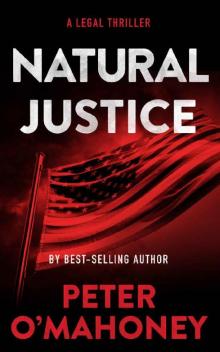 Natural Justice: A Legal Thriller (Tex Hunter Legal Thriller Series Book 6)
Natural Justice: A Legal Thriller (Tex Hunter Legal Thriller Series Book 6)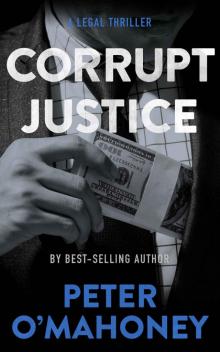 Corrupt Justice
Corrupt Justice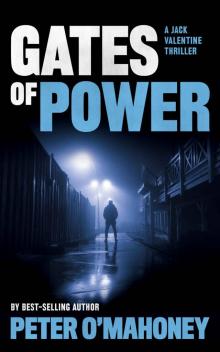 Gates of Power
Gates of Power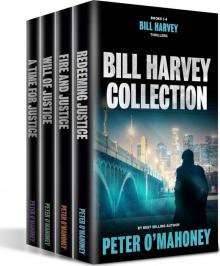 Bill Harvey Collection
Bill Harvey Collection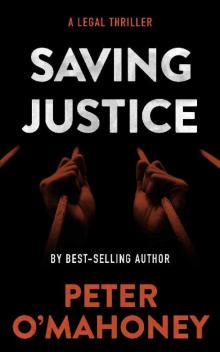 Saving Justice: A Legal Thriller (Tex Hunter Book 5)
Saving Justice: A Legal Thriller (Tex Hunter Book 5)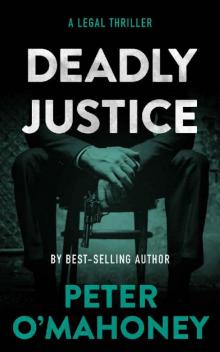 Deadly Justice: A Legal Thriller (Tex Hunter Book 4)
Deadly Justice: A Legal Thriller (Tex Hunter Book 4)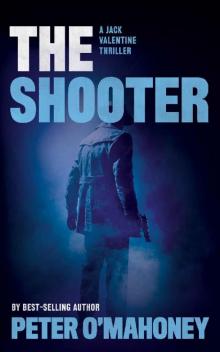 The Shooter
The Shooter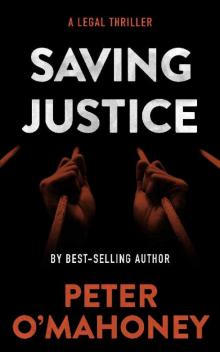 Saving Justice
Saving Justice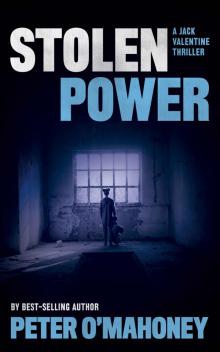 Stolen Power
Stolen Power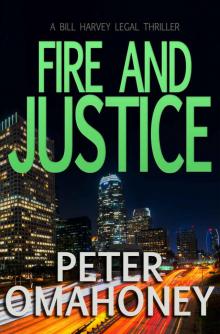 Fire and Justice_A Legal Thriller
Fire and Justice_A Legal Thriller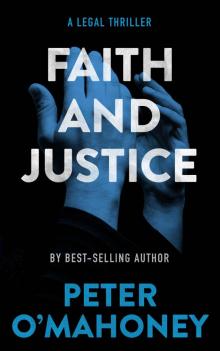 Faith and Justice
Faith and Justice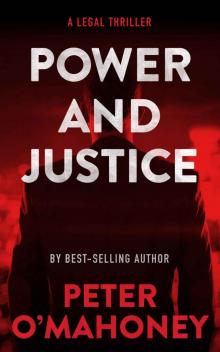 Power and Justice
Power and Justice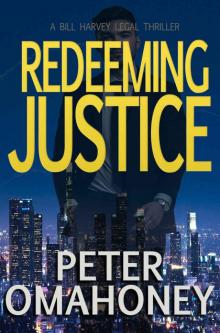 Redeeming Justice: A Legal Thriller (Bill Harvey Book 2)
Redeeming Justice: A Legal Thriller (Bill Harvey Book 2)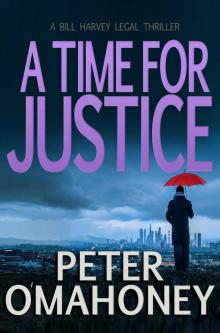 A Time for Justice: A Legal Thriller (Bill Harvey Book 4)
A Time for Justice: A Legal Thriller (Bill Harvey Book 4)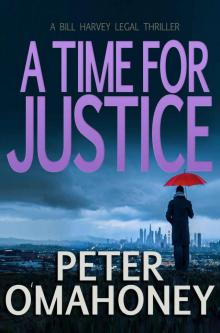 A Time for Justice_A Legal Thriller
A Time for Justice_A Legal Thriller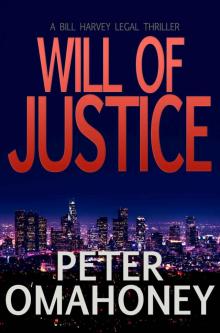 Will of Justice: A Legal Thriller (Bill Harvey Book 1)
Will of Justice: A Legal Thriller (Bill Harvey Book 1)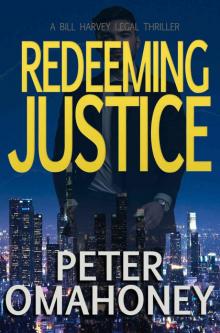 Redeeming Justice_A Legal Thriller
Redeeming Justice_A Legal Thriller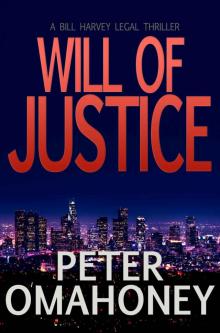 Will of Justice_A Legal Thriller
Will of Justice_A Legal Thriller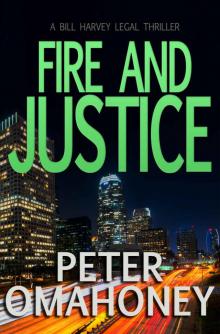 Fire and Justice: A Legal Thriller (Bill Harvey Book 3)
Fire and Justice: A Legal Thriller (Bill Harvey Book 3)